Wait... What?
March 29, 2012
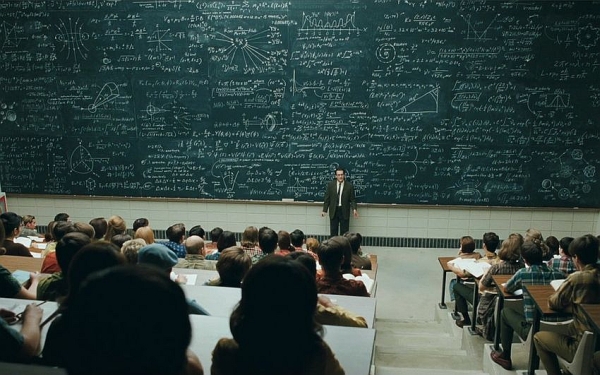
Could I get the notes
from Tuesday?
Music Association: Genesis -
Misunderstanding
Movie Review
Hugo (2011) by Martin
Scorsese
March 28, 2012
Recently while watching the movie Hugo in spectacular 3D, I
had the
feeling I had seen it before.
I get déjà vu a great deal. (Didn't I just say
that?!?) And Hugo is something of an homage to
silent films; I got that, but there was something else.
Then it hit me.
I got a big, goofy grin on my face.

I realized where I'd seen this before.
This was the pilot of Moonlighting.
My goodness, Ms. Dipesto,
we're looking a little pale today, aren't we?
Moonlighting was the TV show that launched the career of Bruce Willis.
The Moonlighting pilot was all about a watch that didn't work, just
like Hugo was about an automaton that didn't work. David and Maddie
form a partnership to solve the mystery, like Hugo and Isabelle. They
get in trouble and are chased, standard stuff. Their nemesis is a
well-dressed bald man with white hair on the sides played by Robert
Ellenstein (Moonlighting) and Ben Kingsley (Hugo).
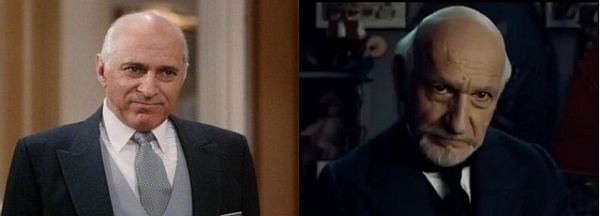
And the main character winds up holding on to the arms of a
giant clock.

Here's Harold Lloyd in Safety Last, Cybil Sheppard (stand-in) in Moonlighting, and Asa Butterfield in Hugo.
This shot from Safety Last (1923) was only about a block from
where the Eastern Columbia Building went up in 1930, which was the
cliff hanger location for the Moonlighting pilot.
I've enjoyed all three movies. I recommend the trilogy.
I seem to be the only movie reviewer on the 'net that made
the Hugo -
Moonlighting connection... at least, at this time.
Music Associations: The Four
Seasons - Let's Hang On (To What We've Got); Babys - Isn't It Time;
& Pink Floyd - Time
Movie Associations: Safety Last (1923); ABC Sunday Night Movie:
Moonlighting (1985); & Hugo (2011)
The
Trouble with the Golden Rule
March 27, 2012
A key plot-point of my novel is the unintended consequences
of being
anonymously nice.
The kindness of strangers can be very influential.
It's something I do, whenever possible. And it can leave
people with
this "What just happened?" look on their faces. I've spotted people
going back through the motions of what they did to see if that nice
thing would happen again.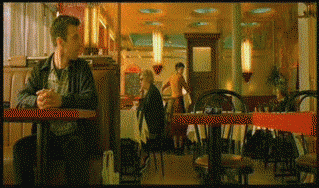
Not that you should make
a leap of logic and decide that all
Minnesotans are nice. Minnesotans can walk on water, we drive
on water (half the year), but Minnesotans are not all nice. If they
were, my random
anonymous acts of kindness wouldn't seem so unusual.
I have a deep understanding and kinship with the title
character
of Amélie
Poulain
(2001) by Jean-Pierre Jeunet, who becomes wrapped up with her anonymous
acts of kindness, guided by her immense heart. A domino effect of karma
zips through her world due to her simple-yet-significant acts.
The problem I have with both karma and the golden rule is the
focus on
the reciprocity of the thing, sort of "do good because it will come
back to you." No. That's not why I do good. It's not recycling. I don't
need or expect a return gift. I'm not looking for attention or name
recognition. It's not like the key line of Iris by the Goo Goo
Dolls, "I just want you to know who I am." I don't. It isn't about me. Forget me.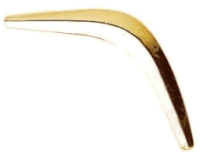
The
key to life is not some Golden Boomerang.
Most religions preach
the Golden
Boomerang:
► Ancient Egyptian (Maat) -- Do to the doer to cause that he
do thus to you.
►
Buddhism (Udana-Varga
5,1) -- Hurt not others in ways that you
yourself would find hurtful.
►
Christianity
(Matthew 7:12; Luke 6:31) -- Whatever you wish that men would
do to you, do so to them.
► Hinduism
(Mahabharata 5,1517) -- Do
naught onto others what you would not have them do unto you.
►
Judaism (Leviticus
19:18) -- Love
your neighbor as yourself.
Taoism preaches
a step further:
► Taoism (Tai
Shang Kan Ying P’ien)
-- Regard your
neighbor’s gain as your gain, and your neighbor’s
loss as your own loss.
Islam preaches a step
further:
►
Islam (Quran 13:22,
23:96, 41:34, 28:54, 42:40) -- Return
evil with kindness.
The trouble with most of these rules is the reciprocity, that
gift for a gift
(as
Hammurabi might say).
The other problem, probably the biggest problem, is the
inconsistencies
of the religions. They fail to practice what they preach.
Music
Associations: Culture Club - Karma Chameleon & Ratt - Round and
Round "What comes around goes around."
& Jill
Jackson - The
Golden Rule Song "It’s just the Golden Rule, the
olden
Golden Rule; do, do unto others, as you want them to, do, do, do unto
you."
Turned
Water Into Wine
March 26, 2012
Years ago, my father turned water into wine. It
might have
been a
miracle, I don't know. I didn't see it happen. He wanted to show me how
he did it, but I didn't see a practicality to it. I was unimpressed.
Here's a tip for you: If someone turns water into wine, be
impressed.
Even if that someone is related to you.
One of the reasons I was unimpressed was that it had been
done before.
I knew water had been turned to wine by Jesus. And I was unimpressed
because I was raised to be an independent thinker.
 Now
I'm trying to take the pieces he told me and put together how he turned
water into wine.
Now
I'm trying to take the pieces he told me and put together how he turned
water into wine.
Googling
"water
into wine" leads to magic tricks using sodium
hydroxide or sodium carbonate with phenolphthalein
to turn water red. But there is a giant difference between turning
water red and turning it into wine.
One of the things my dad
said -- he really wanted to show me, not tell
me -- is that he started with wine. Starting with wine to turn water
into wine is something other than miraculous. Also trying it several
times before getting it right sounds kind of not-miracle-like.
He started by taking cheap wine and boiling off much of the
water. "The
result," said my father the non-drinker, "was good." Essentially he
turned the wine to brandy.
Reminds me of a joke. How do you make holy water? You boil
the hell out
of it.
Jesus Turns
Water To Wine
Biblically, here's what happened. According to John
2:1-11 (~69 CE), Jesus, his mother Mary, and his disciples
were at
a wedding in Galilee's Cana. They ran out of wine. Mary essentially
tells Jesus to do something about it. Jesus basically says, "No, it
isn't time." Mary wins. There are six empty 20-30 gallon ceramic jars.
Imagine six ceramic kegs. Hopefully they were sitting right
next
to a spring or an aqueduct. Jesus had the jars filled with water. The
contents were then sampled and declared "good wine." This is a parable
of a wedding, representing the new life. The good wine is Christ's
message. The bad wine is the teachings of other prophets. And Mary is
the feminine, the encouragement, and the rejuvenation. A parable
teacher is teaching a message; the event may have occurred or may not
have occurred; the message is the key.
Historical
Background
According to a 1919
book by Charles Simmonds, "the
word 'alcohol' is derived from the Arabic al-koh'l... indicated a dye
or stain in the form of fine powder, and afterwards any fine powder.
Exactly how the word came to be applied to the spirit obtained from
wine is not very definitely known..."
Galilee (as part of Judea, part of Syria) was part of the
Roman Empire,
and the Roman Empire had a 20% tax on wine, fruit, and olive oil and a
10% tax on grains. There was no tax on mysterious powders.
Wine powder would be easy to transport and would avoid Roman
taxes.
Residue
My father mentioned creating a residue that he scraped off and crushed
into a powder. Powdered
wines are available today, usually for
backpackers.
I've heard of dry wines
before, but that's the driest.
But
could wine powder create wine that would impress a wedding
crowd? The
Bible used the Greek word oinos;
this was wine not grape juice or Kool-Aid. Many
a punch bowl has been spiked with grain alcohol (not powdered
alcohol). Grain alcohol plus the wine powder could turn water
to wine
My father probably
turned wine to powder, then mixed the powder, water,
and some high proof alcohol, like grain alcohol, to re-create wine.
Jesus did the same thing... or performed a miracle.
Music Associations: Jefferson
Starship - Miracles & Johnny Cash - He Turned Water Into Wine
Book Review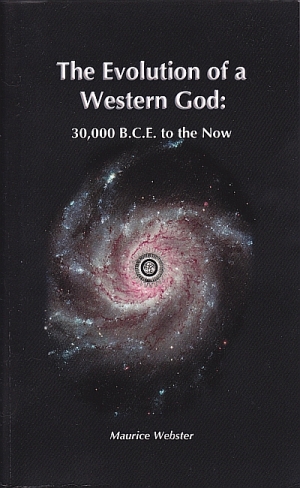
The Evolution of a Western God: 30,000 B.C.E. to the Now by Maurice
Webster
March 23, 2012
The Evolution
of a
Western God: 30,000 B.C.E. to the Now by Maurice Webster
is a journey through the origins of religion and science.
This is a scholarly ride from pre-history to the present, the
history
of monotheistic,
western religion
and science, where they met and where they diverged.
The
book explores paths other
history books fear to tread, leisurely crossing related scholarly
disciplines without regard to their traditional boundaries. Most
students of religion take one narrow path of study. They stick to that
path without regard to parallel and intersecting paths of other
religions, math, science, and the environments that caused changes in
the course.
Chaim Potok's Wanderings
- History of the Jews and Richard Friedman's Who Wrote The Bible
are great works of religious history, but both take narrow paths,
compared to Webster's Evolution
of a Western God.
This is a road less traveled but not traveled alone. Behind
the scenes
(and emerging from behind the curtain here and there) is a love story,
a story of how the author and his (late) wife read and explored these
concepts for nearly fifty years, before Mr. Webster put it in print.
The books they read and the lectures they attended are
thoroughly
annotated, inviting readers to share the complete journey.
The journey is assisted by artwork from the author and others.
Evolution of a Western God addresses
the foundation of western beliefs -- where they're steering us and
where they've left us adrift. That's half the point. It's a concern for
where we're going.
Math
Problems
While Evolution of a Western God shows
math's role in the divergence of religion and science, I will take it a
step further.
Division
Religious
groups that divide should instead be providing the moral and ethical
views that will unite, that will lead to peace. Religion is not meeting
its expectations.
Multiplication
In
1550, the world had 500 million people. In 1804, a billion people. In
1922, two billion people. In 1959, three billion. In 1974, four
billion. In 1987, five billion. In 1999, six billion. In 2011, seven
billion. You see where this is headed.
All
because
of Genesis 1:28, where God said, "Be fruitful and multiply." Okay,
we've done that. I think we can check that one off.
Subtraction
Each
year, deforestation clears the equivalent of Panama (about 30,000
square miles). About half (48%) is for subsistence farming. The
nutrient poor soil is quickly depleted, leading subsistence farmers to
be continually on the move (burning & depleting, burning
&
depleting). A third (32%) of the deforestation is for commercial
agriculture. Fourteen percent is for logging and five percent for fuel
wood.
In
the other
part of Genesis 1:28, God said, "Fill the earth and subdue it." Okay,
okay, the Earth is subdued. It yields. It gives up. Uncle already.
We're losing our air filter.
And Now Back to
the Book
Review
Read The Evolution of a Western God:
30,000 B.C.E. to the Now by Maurice Webster. It
brings religion up-to-date.
Music Association - Sam Cooke -
Wonderful World
Don't know much about geography
Don't know much
trigonometry
Don't know much about
algebra
Don't know what a slide
rule is for
But I do know
one and
one is two
And if this one could
be with you
What a wonderful world
this would be
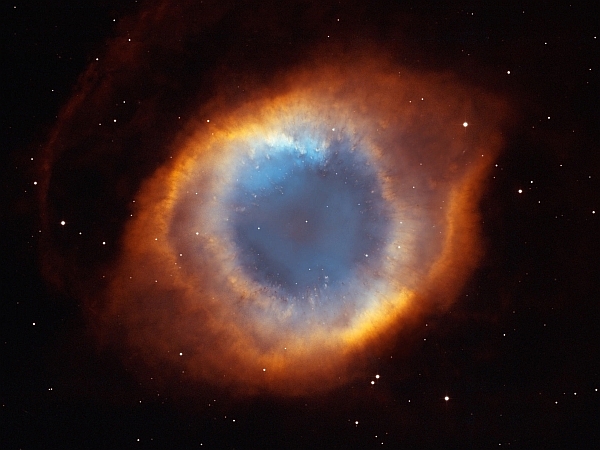
The
Science of God
March 22, 2012
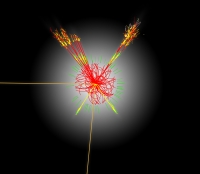 Imagine
staring into a telescope
or microscope only to find another eye staring back at you.
Imagine
staring into a telescope
or microscope only to find another eye staring back at you.
For centuries,
scientists have looked for God. They've searched the
world, the microscopic world, the stars, the human body, our DNA, and
reasoning.
Famous
Scientists and God
René Descartes (mathematician,
scientist and philosopher; 1596-1650)
used circular logic in his Meditationes de Prima Philosophia
that God exists.
Isaac
Newton (astronomer,
physicist, mathematician, and alchemist; 1642-1727) said in his Philosophiæ Naturalis
Principia Mathematica that the "beautiful
system of the sun, planets, and comets, could only proceed from the
counsel and dominion of an intelligent and powerful Being."
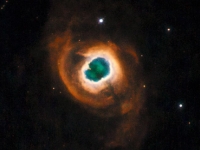 Albert
Einstein (theoretical
physicist
1879-1955) is often quoted as saying, "Science without religion is
lame, religion without science is blind." Einstein
did not believe in a personal God, but in a "God who reveals Himself in the
harmony of what exists."
Albert
Einstein (theoretical
physicist
1879-1955) is often quoted as saying, "Science without religion is
lame, religion without science is blind." Einstein
did not believe in a personal God, but in a "God who reveals Himself in the
harmony of what exists."
The
Survey Says...
Half
of scientists (51%)
surveyed by Pew Research in 2009 say they believe in God or a higher
power, while 41% say they do not. In 1914, psychologist James Leuba
surveyed 1,000 U.S. scientists about their views on God. He found the
scientific community evenly divided, with 42% saying that they believed
in a personal God and the same number saying they did not. [source: LA
Times]
A 2005 University of Chicago study found 76% of
doctors
believed
in God and 59% believed in some sort of afterlife. Another 2005 study
(Rice University) found two-thirds of scientists believe in God (or at
least two-thirds of the 1,646 research university faculty
members
surveyed). [source:
LiveScience]
Feynman's
Imaginary Panel of Experts
Richard Feynman (physicist, 1918-1988) imagines a panel of scientists
and spiritualists discussing questions of science and religion in a
chapter of his book, The
Pleasure of Finding Things Out.
He questions the imaginary panel why a student of science
might come to
doubt his religious beliefs. He runs through some cruddy (my word, not
his) answers he imagines getting from the panel, and then suggests
a difficulty in welding science and religion together:
It
is imperative in science to doubt; it is absolutely necessary, for
progress in science, to have uncertainty as a fundamental part of your
inner nature. To make progress in understanding we must
remain
modest and allow that we do not know. Nothing is certain or
proved beyond all doubt. You investigate for curiosity,
because
it is unknown, not because you know the answer. And as you
develop
more information in the sciences, it is not that you are finding out
the truth, but that you are finding out that this or that is more or
less likely...
If
we investigate
further, we find that the statements of science are not of what is true
and what is not true, but statements of what is known to different
degrees of certainty:.. Every one of the concepts of science is on a
scale graduated somewhere between, but at neither end of, absolute
falsity or absolute truth...
Feynman says that religion "tells
us
how to behave in life in general, in a moral way. It gives
answers to moral questions; it gives a moral and ethical
code.
Let me call this the ethical aspect of religion... [People] must
be reminded of the moral values in order that they may be able to
follow their consciences. It is not simply a matter of having
a
right conscience; it is also a question of maintaining strength to do
what you know is right. And it is necessary that religion
give
strength and comfort and the inspiration to follow these moral views...
I don't believe that a real conflict with science will arise in the
ethical aspect, because I believe that moral questions are outside of
the scientific realm."
Music Association: The Script -
Science and Faith

©
Calvin &
Hobbes by Bill Watterson, 1991. Couldn't find which of my twelve Calvin
& Hobbes books this was in, so I linked it to the collected
works.
Religious Comedy
March 21, 2012
George Carlin edited the Ten
Commandments down to two: "Thou
shalt always be honest and faithful. Thou shalt try real hard
not
to kill anyone... unless they pray to a different invisible man than
the one you pray to."
Sam Kinison
said, "It all goes back to Jesus.
He didn't even know he was the son of God. As a child, his mother told
him,
'You're the son of God. When you were born the angels came, the stars
stood in one place, the wise men brought gifts, and the whole world's
been waiting for you to come and do great things.' Jesus
said, 'Really? Me? Are
you sure?' Joseph's walking around
going, 'Yeah,
you had better be the son of God, I'll tell you that. You had better be
him, little mister. And you better be the only son of
God.'"
Music Association: Delta Goodrem
- God Laughs
 Take
a Seat
March 20, 2012
Take
a Seat
March 20, 2012
When you sit in an audience, do you tend to sit on the left
or on the
right? (Or left of center or right of center?)
A study conducted years ago said that left brain
(analytical, objective) people sit on the
left. Right brain (intuitive, subjective) people
sit on the right. Like all sociological studies, it was packed full of
generalizations. I consider myself analytical for some subjects and
intuitive in others; where I sit tends to follow that model, based on
what the subject is.
Take religion, please.
Imagine you are simultaneously stepping into a church, a mosque,
and a temple. It is possible that people seated on the left have more
in common with people seated on the left in other places of worship,
than those seated on the right in their own place of worship.
I know, it's heresy to imagine -gasp-
common beliefs amongst religions -- too often hell-bent on destroying
one another.
[I shouldn't have said "hell-bent." I apologize. I should
have said,"
H-E- two, tall,
religious icons... bent."]
So looking at a map of the religions of the world, you might
see this:
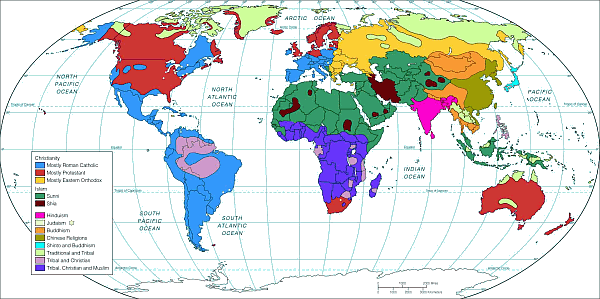
Or else, the world looks more like this:
We aren't all the same, but we are more alike
than different. And
religions are not as
uniform as they think they are.
Music Associations: John Lennon
- Imagine & REM - Losing My Religion
Drinkin' In The Green
March 19, 2012
Drinking in the green on St. Patrick's Day, I could taste the
clover. 
Not clover actually, more like chlorella, spirulina
(arthrospira), and blue green algae (really
taste the
algae), barley and wheat grass, broccoli,
spinach, parsley...
all mixed with 2 ¾ apples, ½ banana, ⅓ kiwi
(really taste the kiwi), and ⅓
mango.
Eat your heart out shamrock shake.
Literally. According to a 2001 Virginia University study,
"daily dietary supplementation with chlorella may reduce high blood
pressure, lower serum cholesterol levels, accelerate wound healing, and
enhance immune functions." Sounds ♥ friendly.
[Oops, I
accidentally hit the ♥ key instead of typing out "heart,"
which
is understandable here, but if I hit the ♣ key instead of
typing
out "shamrock," somebody might have thought, "What's a clubs shake?!?"]
The Green Machine was a great St. Patrick's Day drink. But it
could use
some clover.
Music Associations: Joan Jett -
Crimson and Clover & Beatles - Penny Lane "It's a green
machine."
 Taste
O'
Luck
Taste
O'
Luck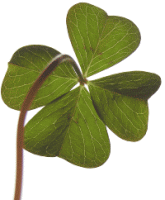 March 17, 2012
March 17, 2012
How can I be so lucky?
Irish I
knew.
As a lad,
many a four-leaf clover I did plucky.
And
wondered with them what I should do.
When I was a kid, I used to find scores of four-leaf
clovers.
People say that four-leaf clovers are a lucky find, but not what to do
with them. Some people save them. To me, if four-leaf clovers are
lucky, then to carry them around is like the death of luck or it's like
luck in storage. Luck shouldn't be kept in storage. What's it going to
do, earn interest?
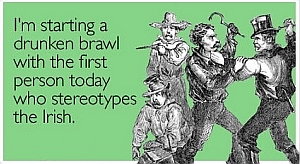 Four-leaf
clovers should be eaten.
They're tangy. I've never eaten ordinary clover leaves, so I don't know
if all clovers are tangy or if it's the luck that makes them tangy. All
I know is that four-leaf clovers are tangy. And I'm lucky.
Four-leaf
clovers should be eaten.
They're tangy. I've never eaten ordinary clover leaves, so I don't know
if all clovers are tangy or if it's the luck that makes them tangy. All
I know is that four-leaf clovers are tangy. And I'm lucky.
Music Associations: Faith Hill -
Lucky One
& John Fogerty - Fortunate Son
Whiskey Mist
March 16, 2012
 Everyone
has their problems. I
distract bartenders.
Everyone
has their problems. I
distract bartenders.
Noticing tattoos on some of his fingers, I
commented on them while he
was pouring. He glanced at his fingers. The whiskey hit the rim of the
shot glass, spraying a whiskey mist across the bar.
"What if you had a tattoo of liquid measurement lines up your
finger?"
I asked. "You know, one ounce, two ounce, three ounce..."
He laughed a bit, spraying more whiskey around.
Music Association: Metallica -
Whiskey In The Jar




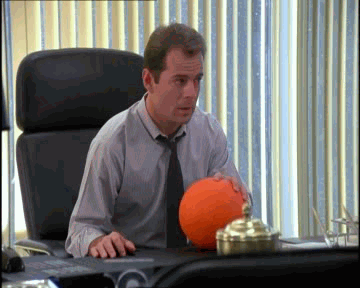




 Now
I'm trying to take the pieces he told me and put together how he turned
water into wine.
Now
I'm trying to take the pieces he told me and put together how he turned
water into wine.














 Four-leaf
clovers should be eaten.
They're tangy. I've never eaten ordinary clover leaves, so I don't know
if all clovers are tangy or if it's the luck that makes them tangy. All
I know is that four-leaf clovers are tangy. And I'm lucky.
Four-leaf
clovers should be eaten.
They're tangy. I've never eaten ordinary clover leaves, so I don't know
if all clovers are tangy or if it's the luck that makes them tangy. All
I know is that four-leaf clovers are tangy. And I'm lucky.